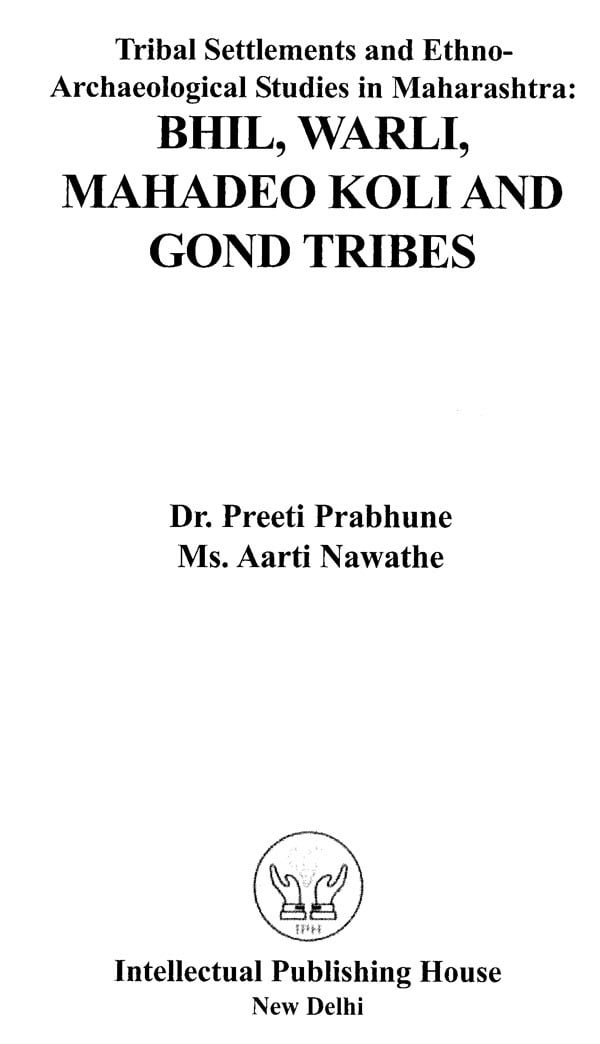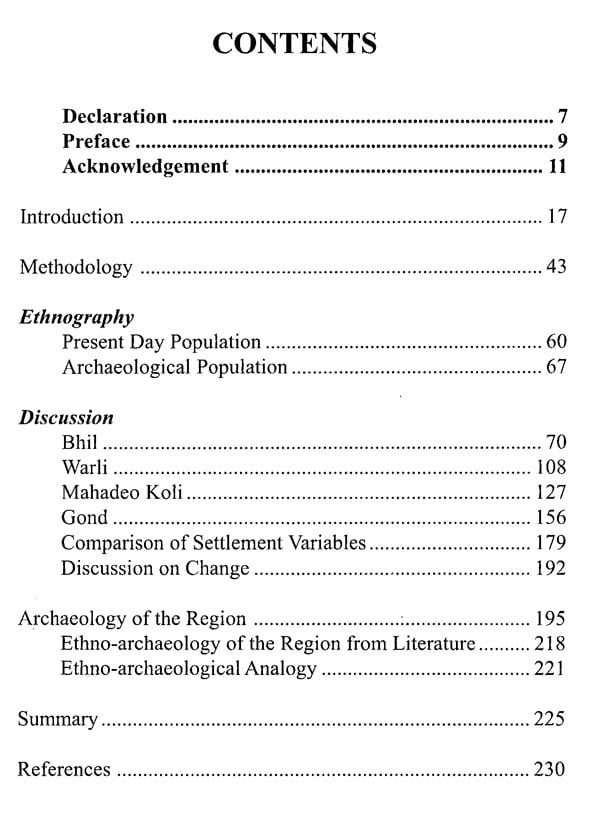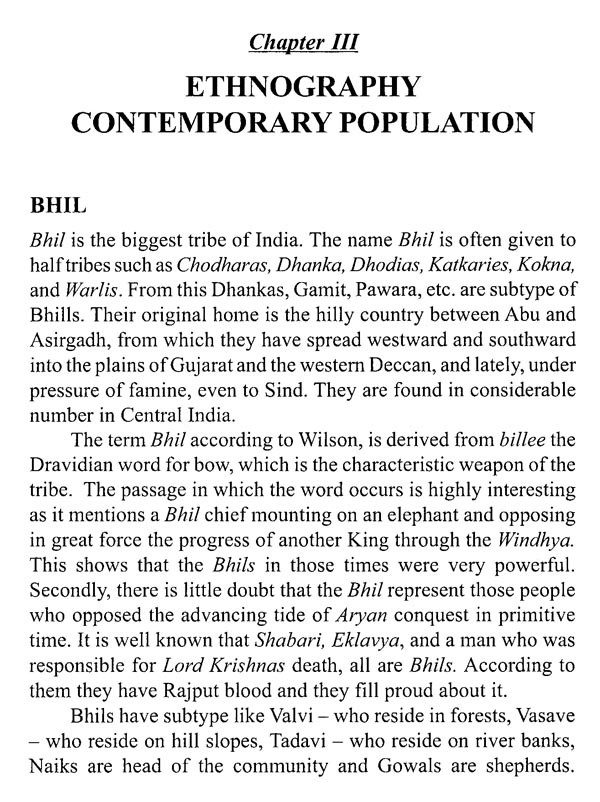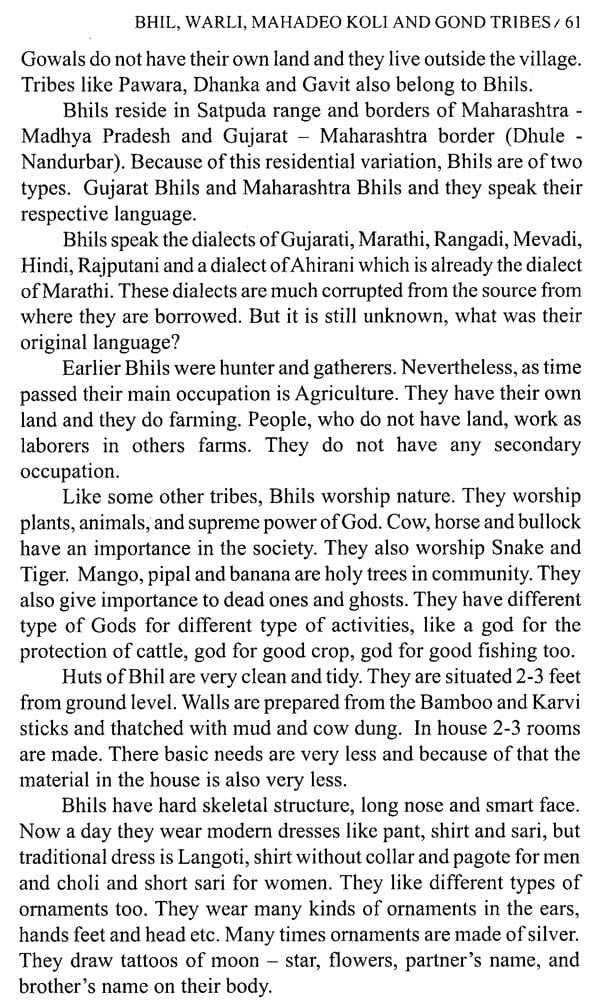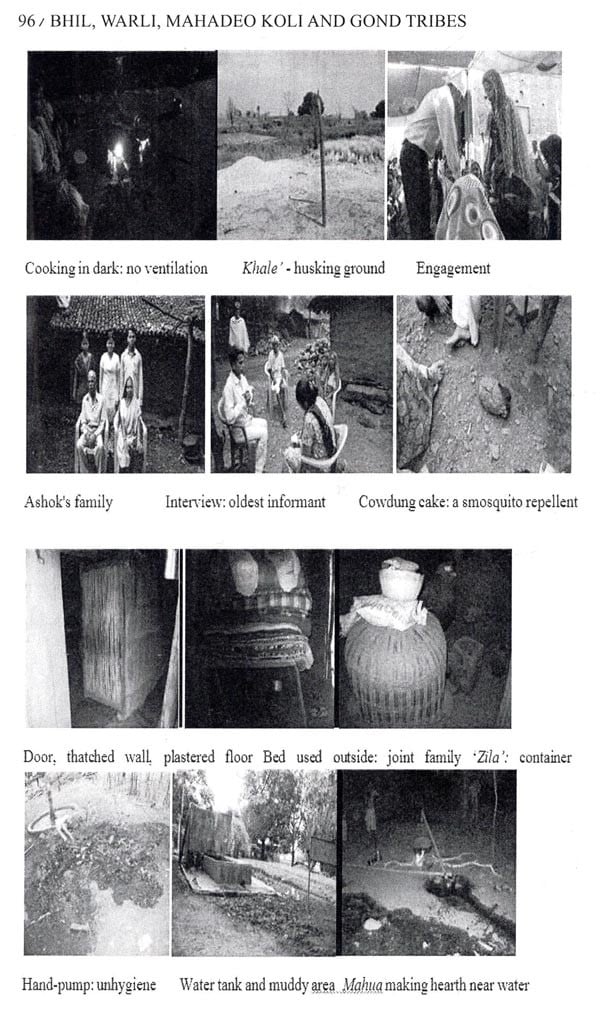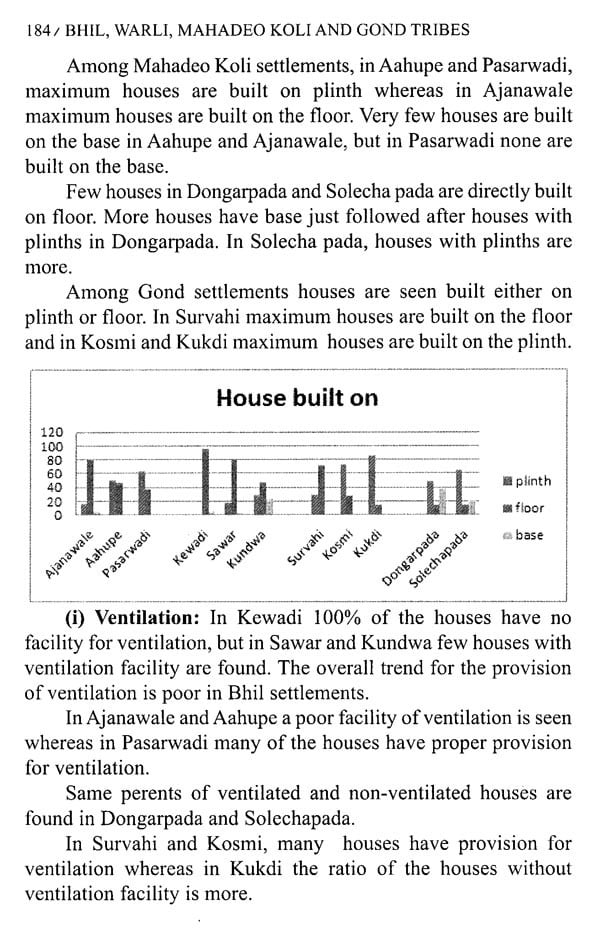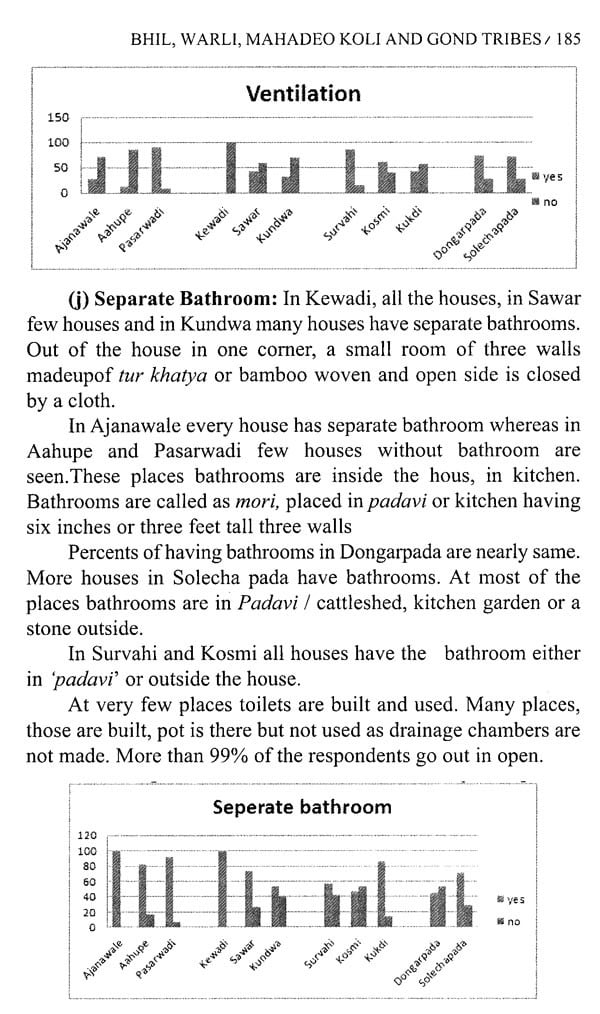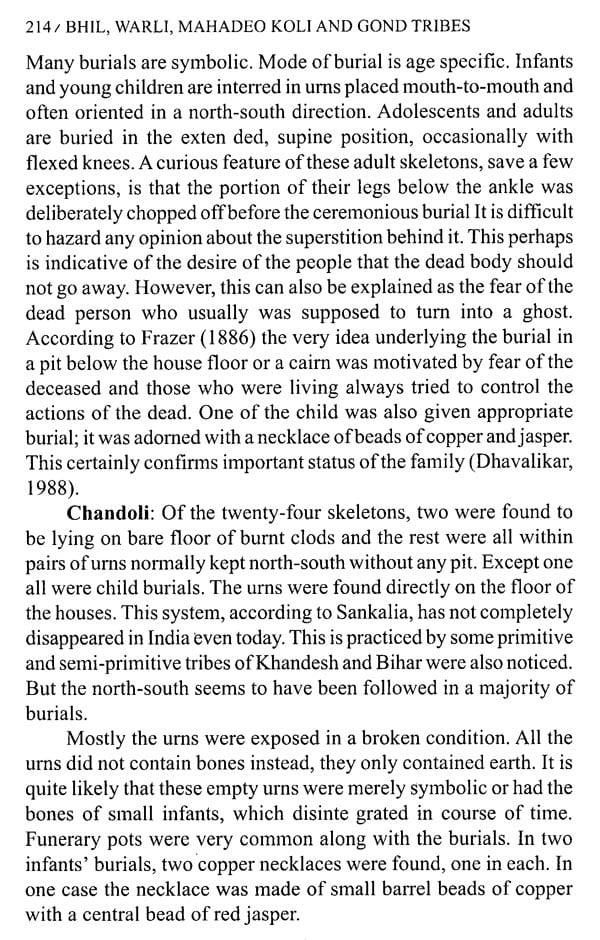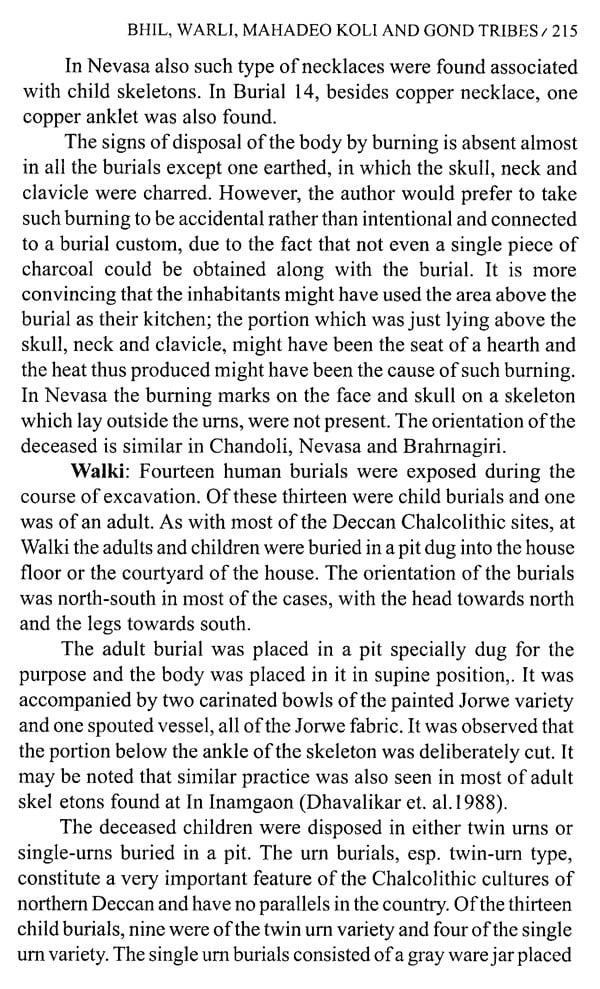
Tribal Settlements and Ethno-Archaeological Studies in Maharashtra- Bhil, Warli, Mahadeo Koli and Gond Tribes
Book Specification
| Item Code: | AZE889 |
| Author: | Preeti Prabhune and Aarti Nawathe |
| Publisher: | Intellectual Publishing House, New Delhi |
| Language: | ENGLISH |
| Edition: | 2021 |
| ISBN: | 9788194784456 |
| Pages: | 232 |
| Cover: | HARDCOVER |
| Other Details | 9.00x6.00 inch |
| Weight | 440 gm |
Book Description
Hopefully this holistic settlement study will interest the students and scholars of anthropology, archaeology, indology, history, geography, and fulfill the curiosity of layman. Such studies can be carried out in other parts of India and may give impetus to varied research problems and studies.
Dr. Preeti began her journey with journalism, then a school teacher, afterwards enjoyed the complete research process. She has a five years experience in NGO sector as community development manager and research director. She published many research papers, articles and a Marathi book titled, "A Day With Female Workers" has by Unmesh Publications, Pune. She is presently working on the compilation of demographic variables about Bhima Basin for Maharashtra Gazetteer.
Aarti Prasanna Nawathe is a presently working as Assistant Professor in the Department of Anthropology in Savitribai Phule Pune University, Pune, Maharashtra. Her educational background counts for Masters in History, Anthropology and Indology. In the year 2013 she earned the eligibility in NET Anthropology and in 2018 SET in History too. Currently she is pursuing her Doctoral degree from Savitribai Phule Pune University in Bio-cultural Anthropology. Being trained Anthropologist and working for more than 7 years in the field of research, she possesses the versatile experience of tribal as well as in urban studies. The projects like ethno archeological study of settlement pattern, Ethno botanical study of tribes of Maharashtra and networking and group dynamics analysis of Government schools in Karnataka and Tamil Nadu States have offered her in-depth understanding of cultural ecological diversities and their association and impact on human lives and societies. It has enriched her experience encompassing various fields of anthropology such as ethno archeology. medical anthropology, developmental anthropology, urban anthropology, biological anthropology and so on. She has her teaching experience more than 12 years in History with reputed institutions in Pune. She has 7 research articles published in reputed journals and 6 popular articles from popular periodicals. Apart from this, she is appointed as 'Co-coordinator for Marathi Vishwakosh, Vai, for the subject of Anthropology and also she authors few entries in it. Along with this she is working on compilation of various demographic factors associated with Bhima Basin for Maharashtra Gazetteer.
Since ages, man is trying to adapt the ecological conditions and moulds his life accordingly. Study of settlement pattern of primates and human beings in different setup and their material culture are studied under the umbrella of cultural anthropology. Under same climatic conditions at different geographical regions, the expressions of settlement, housing and material organisation are quite similar. As Verrier Elwin says tribal houses possess many qualities like they maintain temperature, so are cosy, cowdung works as insects repellent. As far as settlement as a whole is considered, water sources / storage, burial ground / grave yard, crematorium, agricultural lands, temples, forests, sacred grooves, etc. are also important parts along with residential areas underlining social organization - stratification, clans and kingroup distances. By studying material culture in relation to above gives a fair picture of ecology, economical, political and social organization of the simple tribal communities.
Though these simple folks are rarely untouched these days due to urbanization and connectivity, it is important to document its present statuesque, traditional lifeways, cultural parallels found through ancient cultural parallels in the same region enable to have good understanding of culture. Culture is patterned and processed, is the paradox, indicating its stable and dynamic nature.
The term civilization has been derived from the Latin word 'city-state' to mean an urban society. A civilization is a larger unit than a culture and in fact it includes a number of cultures. The unity of cultures is maintained by a general mode of living, which may or may not be an outcome of racial similarity. There are plenty of factors including the climatic condition, which influence the mode of life of the people of diverse cultures in a particular area. However the cultures advance toward civilizations when a new relationship was established between man, animals and plants.
**Contents and Sample Pages**
